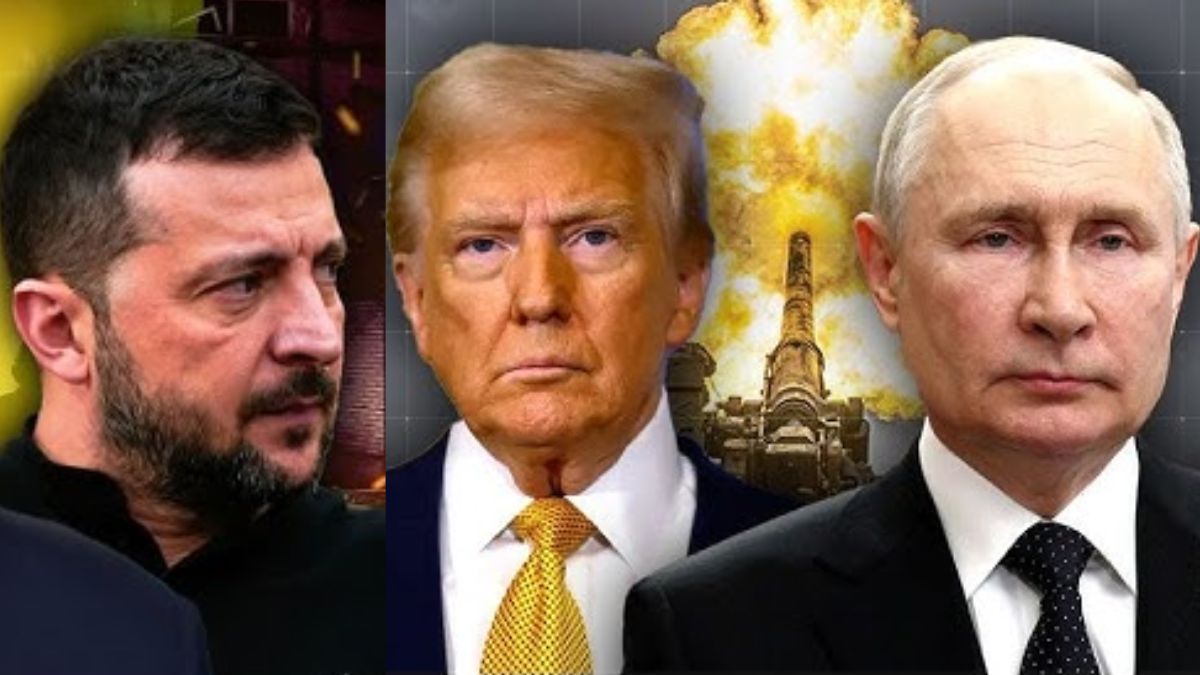US President Donald Trump’s recent two-hour discussion with Russian leader Vladimir Putin has sent shockwaves through Kyiv and its Western allies. After months of concerted efforts to secure stronger US backing against Russia, Ukraine and its supporters now find themselves back at square one.
In a two-hour conversation with Russian President Vladimir Putin, Trump abandoned his earlier demand for an unconditional 30-day ceasefire, a proposal Kyiv had supported in the hope of launching serious peace talks but rejected by Russia. This pivot suggests a departure from the “stick” approach of threatening tougher sanctions on Russia for lack of peace progress, now replaced by a “carrot” of economic partnership if and when the conflict concludes. The change is a profound setback for Ukraine, which had hoped this pressure would compel Moscow to ease its maximalist demands.
Trump, who once pledged to end the war swiftly, also downplayed his role in resolving the conflict, suggesting the outcome now lies elsewhere. The timing is especially damaging for Ukraine, coming just weeks after a high-profile rift between Trump and President Volodymyr Zelenskyy. European leaders caught off guard by the policy pivot are scrambling to assess their next move.
Just days before the call, Trump had warned of stricter sanctions on Russia if peace efforts stalled, a strategy Ukraine hoped would pressure Putin. That threat has now given way to offers of economic cooperation should hostilities cease, shifting the balance toward Moscow.
European officials expressed deep frustration at the reversal. One diplomat described Trump’s sudden departure from an agreed strategy as a breach of trust. “He dropped the plan overnight after talking to Putin,” the official said. “He does not seem invested in Ukraine at all.”
Putin’s calculus and Ukraine’s vulnerability
Despite Trump’s apparent shift, Ukraine and its European allies have maintained a united front, announcing new sanctions against Russia and affirming their commitment to engage with the United States. They acknowledge the possibility of another change in Trump’s stance.
However, deep mistrust of Putin persists. With a larger army steadily gaining ground along the 1,000-kilometer front line for over a year, Russia continues to insist that any peace agreement must reflect the current battlefield realities.
Impact Shorts
More ShortsGerman Defense Minister Boris Pistorius stated, “Putin is clearly playing for time. Unfortunately, we have to say Putin is not really interested in peace.” Orysia Lutsevych of Chatham House’s Ukraine Forum echoed this, noting, “For Russians, the battlefield and diplomacy are two sides of the same coin,” with Putin using diplomatic delays to solidify gains.
Putin, for his part, claimed after the call with Trump that Moscow was ready to collaborate with Ukraine on a future peace accord and that efforts to end the conflict were on track.
Washington’s backing has been critical to Ukraine’s defence, not just in terms of funding but also advanced military intelligence. As uncertainty builds over future US support, Kyiv is increasingly dependent on Europe, which lacks access to certain key American weapon systems.
While European capitals have pledged continued aid, their leverage depends in part on Washington’s stance. Trump’s unpredictable approach has already created doubts, especially after a minerals deal and rare Ukraine-Russia talks in Istanbul seemed to suggest renewed diplomatic momentum.
The economic pressure the US can exert on Russia, whose economy is showing signs of strain from war costs despite weathering previous Western sanctions, is another factor that now appears less certain.
Dashed hopes and allied disappointment
For Ukraine and its allies, the outcome of Trump’s call with Putin is particularly disheartening because there had been recent signs of gaining his support in pressuring Moscow. In March and April, Trump had reportedly expressed frustration with Putin’s perceived foot-dragging and even threatened tougher sanctions. These pronouncements, despite lingering differences between US and European positions on territorial issues, were viewed positively by Kyiv, especially after a contentious public exchange between Zelenskyy and Trump in February.
Further signs of progress included a minerals deal signed between Ukraine and the US last month and the first direct talks between Ukrainian and Russian officials in nearly three years, held in Istanbul.
The disappointment among allies was palpable following Monday’s call. As one European diplomat summarised, “It’s one step forward, two or 10 steps back. We will continue to pass messages to the Trump administration and push, push for it to pressure Russia.”
)